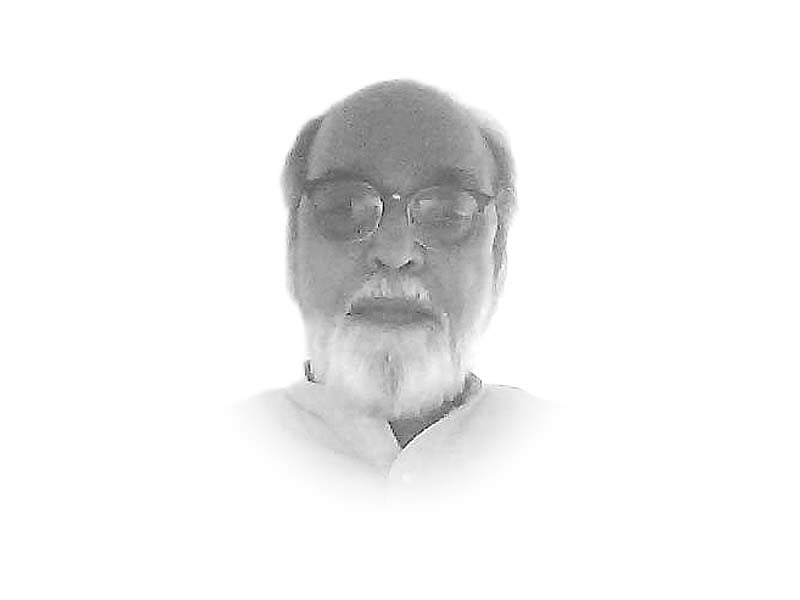
Why do we find ourselves in a Gordian knot all the time? Why is it that we dig our own grave?
Nation-building necessitates delineation of a socio-political order for which a constitutional and institutional framework needs to be created; this did not happen in our country. We went through two martial laws and even then the Constitution was easily set aside to accommodate two further military dictators. What can be said of the sanctity of such a Constitution which allows the judiciary to legitimise its suspension or put it in abeyance whenever a gun is pointed towards it?
The creation of a road map for the nation is a complex business requiring foresight, vision and adherence to its principles in order to set its direction. Although Mr Jinnah’s speeches and writings provided more than a glimpse of such a road map and a clear direction, all our successive rulers either lacked the capacity to rise above personal interests to complete his mission or were simply incapable of grasping its import.
Leaderless after Jinnah and directionless without a constitutional framework, the nation plunged into an oppressive feudal-military-bureaucratic triumvirate which ruled through ad hocism and opportunism that continues in essence even now. The self-centred pygmy politicians thrown up from time to time are the creation of or subservient to the triumvirate and not leaders in their own right.
This unfortunate state of affairs has never allowed the people of Pakistan to blossom, to develop their freedoms and faculties in an atmosphere of openness, to articulate their aspirations and pursue their ambitions with dignity, to receive a quality education, to adopt an analytical and engaging approach to learning both the temporal and religious, to base their decisions on morality and sound principles that ensure protection for the rights of fellow humans. Clearly, the mental, emotional and spiritual development of Pakistanis has been neglected over the last three generations. As a result, a large majority is unable to pursue a dignified, meaningful and beneficial existence that contributes positively to society.
This does not mean that some do not excel; they do but their numbers are too small. They are mostly from the upper or upper middle class, who have the opportunity of receiving the schooling of their choice, going abroad for higher studies and not returning. They do not undergo oppression by the state, the violence of the mohalla, threats of hellfire from the ignorant mullah or dealing with the thugs of the land-grabbing mafia ably supported by the local MNA. That’s the life of a good 90 per cent of our people, hardly an environment to get a good education, develop good character traits or develop skills to meet the needs of the modern world. So we prepare the young lad to join one of the many money-making rackets: become a thug in a mafia operation, join a mullah to become an extremist or a gun-slinger for a political party.
Education, always neglected by our military and civilian rulers, has been rendered useless by mass corruption, cheating, substandard curriculum, poor teachers and distorted facts. It is the major factor affecting the development of our people and deepening our crisis of quality.
As a result of this deficiency in human development, we have not produced the requisite human resource in all spheres. Not a single political leader or military dictator worth the name in 67 years was motivated solely by national interests and was guided by principles. It may be noted that none were from the middle or working class. When people mention Zulfikar Ali Bhutto, we must consider his part in the country’s break-up, the sham socialism, the dictatorial character so evident in his five-year rule, the rigging of the 1977 election, which was admitted since he agreed to a re-poll on numerous seats. His judicial murder by a vicious military dictator cannot wipe out the multi-faceted, but flawed genius that was Bhutto. Ayub Khan is much remembered but people forget his intrigues to derail civilian governments since 1954. His achievements are largely in the economic field; otherwise, he was a complete failure in settling unresolved political issues that finally led to the debacle of East Pakistan. Both Ayub and Bhutto strengthened feudalism’s socio-political hold on Pakistan.
How many professional captains of commerce and industry have we produced, barring a few in multinational corporations? The dearth of professionals is a major reason for the absence of meaningful foreign investment and large-scale sophisticated industries in Pakistan. Lack of specialisation in the upper echelons of management and illiteracy at the worker level means businesses suffer from lower efficiencies, low quality and higher costs. This is why even after 60 years, our textile industry fetches one of the lowest prices in the export market and our textile exports lag behind in both quality and quantity.
A comparison with the exports of a few Asian countries that were far behind us during the 1960s and are far ahead today tells the story: Thailand’s exports are $218 billion, population 68 million; Malaysia’s exports $215 billion, population 32 million; Vietnam’s export $57 billion, population 91 million; Bangladesh’s export $30 billion, population 158 million; and Pakistan’s export $25 billion, population 190 million. The impact on our economy of our socio-political malaise that has paralysed our human development could not be clearer.
We are today faced with numerous crises but are unable to tackle any of them regardless of whether we are under civilian or military rule as both have failed. Unless we deal with the real crisis of human development, dismantle the archaic socio-political system tailored to maintain the powerful and create real opportunities of participation for the masses, our problems can only multiply. Some already refer to us as a failed state; the only way to avoid such a calamity is to focus on the well-being of our only real asset, the people.
Published in The Express Tribune, March 11th, 2015.
Like Opinion & Editorial on Facebook, follow @ETOpEd on Twitter to receive all updates on all our daily pieces.


















COMMENTS (3)
Comments are moderated and generally will be posted if they are on-topic and not abusive.
For more information, please see our Comments FAQ